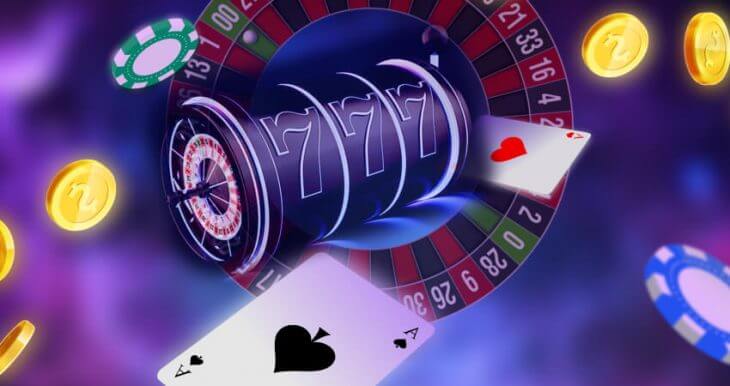
The Fascinating World of Libet
The concept of free will has been a significant topic of debate for centuries, but few studies have had the impact of Benjamin Libet’s experiments in the 1980s. His research provided valuable insights into the intricacies of human decision-making and consciousness. If you want to experience a different kind of choice-making environment, consider visiting Libet https://libetcasino.com/. Let’s dive deeper into the implications of Libet’s findings and explore their relevance in contemporary discussions about free will.
Background of Libet’s Experiment
In the early 1980s, Dr. Benjamin Libet conducted a series of experiments aimed at understanding the relationship between brain activity, conscious awareness, and decisions. Participants were asked to perform simple motor tasks, such as pressing a button, while their brain activity was monitored through electrodes that measured electrical activity using electroencephalography (EEG).
Libet’s groundbreaking discovery came from the observation of a neural activity known as the “readiness potential” (RP), which occurred in the brain before participants reported being consciously aware of their decision to act. This raised significant questions about the nature of free will, suggesting that unconscious processes in the brain may initiate actions before we become aware of our intentions.
The Readiness Potential
The readiness potential is an electrical signal that occurs in the brain as preparation for a voluntary movement. Libet found that this readiness potential begins several hundred milliseconds before the individual consciously decides to move. This critical finding suggests that our brains initiate actions prior to our conscious decision-making, posing a direct challenge to the classical understanding of free will.

In a typical experiment, participants would see a clock and were instructed to press a button at their spontaneously chosen time. They were asked to remember the precise moment they decided to press the button. Notably, the RP appeared approximately 300 milliseconds before conscious awareness of the decision, which led Libet to conclude that the brain effectively decides before the individual is consciously aware of what’s happening.
The Implications of Libet’s Findings
Libet’s experiments have broad implications for philosophical discussions about free will, particularly concerning determinism and moral responsibility. If our brains are making decisions before we are consciously aware of them, do we truly have free will? And, if we lack free will, what does this mean for accountability and ethics?
One potential interpretation of Libet’s findings is that while unconscious processes guide our actions, this does not fully negate our experience of free will. Libet himself suggested the concept of “free won’t,” indicating that while our brains may initiate actions unconsciously, we retain the ability to inhibit or veto these actions consciously. This perspective opens up interesting discussions about how much control we exert over our actions and decisions.
Critiques and Counterarguments
Despite the significance of Libet’s findings, they have not gone uncontested. Critics argue that the experiments may not fully capture the complexities of human decision-making. For instance, the simplicity of the actions taken (such as pressing a button) might not adequately reflect the multifaceted decisions people often face in real life.
Furthermore, some researchers contend that the readiness potential could merely reflect a general preparation state rather than a conscious decision. They argue that our understanding of choice is much more complicated than what Libet’s experiments reveal and that consciousness and decision-making may be more intertwined than suggested.
Recent Research and Developments

Since Libet’s pioneering work, advances in neuroscience have offered more refined tools to explore consciousness and decision-making. Technologies such as functional MRI (fMRI) have allowed researchers to visualize brain activity in real time, leading to new insights into how decisions are formed.
Recent studies have expanded upon Libet’s original findings, examining more complex decision-making processes that involve moral and social factors. Some researchers have identified neural mechanisms underlying decisions that are influenced by various aspects, such as social context and emotional states. These studies suggest a more nuanced interaction between conscious thought and unconscious brain activity than originally proposed by Libet.
Libet’s Legacy
Benjamin Libet’s work has had a profound impact not only in psychology and neuroscience but also in philosophy, ethics, and law. The questions raised by his findings continue to challenge our notions of free will, personal responsibility, and the nature of consciousness. As we expose ourselves to the complexities of human thought and behavior, Libet’s legacy reminds us that the intersection of mind and brain remains an area rich with inquiry.
Ultimately, the exploration of free will and the mechanisms of choice will continue to evolve as technology advances and our understanding deepens. The implications of this research may eventually influence practices in various fields, including psychology, neurology, and even legal systems, where the understanding of human behavior is paramount.
Conclusion
The research conducted by Benjamin Libet has ignited significant discourse around the concept of free will in the context of neuroscience. With the compelling evidence that underscores the role of unconscious processes in decision-making, we are encouraged to re-evaluate traditional notions of agency and accountability. The exploration of these themes invites ongoing dialogue about the essence of human experience—how our thoughts are intertwined with biological processes and how much control we genuinely have over our actions.
This intricate dance between the brain’s activity and our conscious experience of choice continues to inspire inquiry and debate, underscoring the complexity of what it means to be human. As we grapple with questions about free will and consciousness, the relevant findings of Libet will undoubtedly remain at the forefront of these discussions for years to come.
